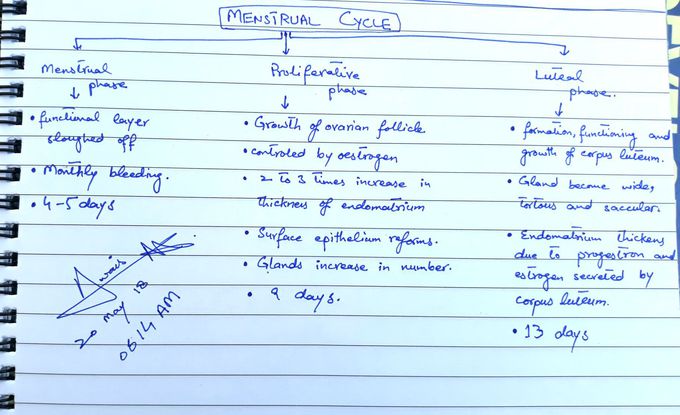
Other commentsSign in to post comments. You don't have an account? Sign up now!
Related posts
Progesterone nutrition during luteal phaseMenstruationDysmenorrhoeaMenstral CycleThe Menstrual CycleHormonal Regulation of Menstrual CycleWhat Is a Normal Period?
A normal period (or normal menstruation) is different for every woman. Each month, one of your ovaries releases an egg. Meanwhile, your uterus gets ready to help your baby grow if that egg gets fertilized. If it does, you’re pregnant. If it doesn’t, your body sheds the lining of your uterus through your vagina. That’s your period. It happens, on average, every 28 days.
Think about how old you were when you got your first period. Now think about how old you may be when you enter menopause. Your body and life will change a lot from one to the other, right? So does your menstrual cycle.
When it comes to periods, "normal" covers a lot of ground. Use the broad range of factors below as a guide. And remember: The only true normal is what's normal for you.Normal Period Flow?
If the egg your ovary releases every month isn't fertilized, the lining of your uterus sheds through your vagina. This is your period. The amount of blood that comes out of your body is called your menstrual flow.
Whether your flow is light, moderate, or heavy, it's all considered normal.What is a menstrual cycle?
The menstrual cycle is a term to describe the sequence of events that occur in your body as it prepares for the possibility of pregnancy each month. Your menstrual cycle is the time from the first day of your menstrual period until the first day of your next menstrual period. Every person’s cycle is slightly different, but the process is the same.Menstrual cramps:
Menstrual cramps (dysmenorrhea) are throbbing or cramping pains in the lower abdomen. Many women have menstrual cramps just before and during their menstrual periods.
For some women, the discomfort is merely annoying. For others, menstrual cramps can be severe enough to interfere with everyday activities for a few days every month.
Conditions such as endometriosis or uterine fibroids can cause menstrual cramps. Treating the cause is key to reducing the pain. Menstrual cramps that aren't caused by another condition tend to lessen with age and often improve after giving birth.


